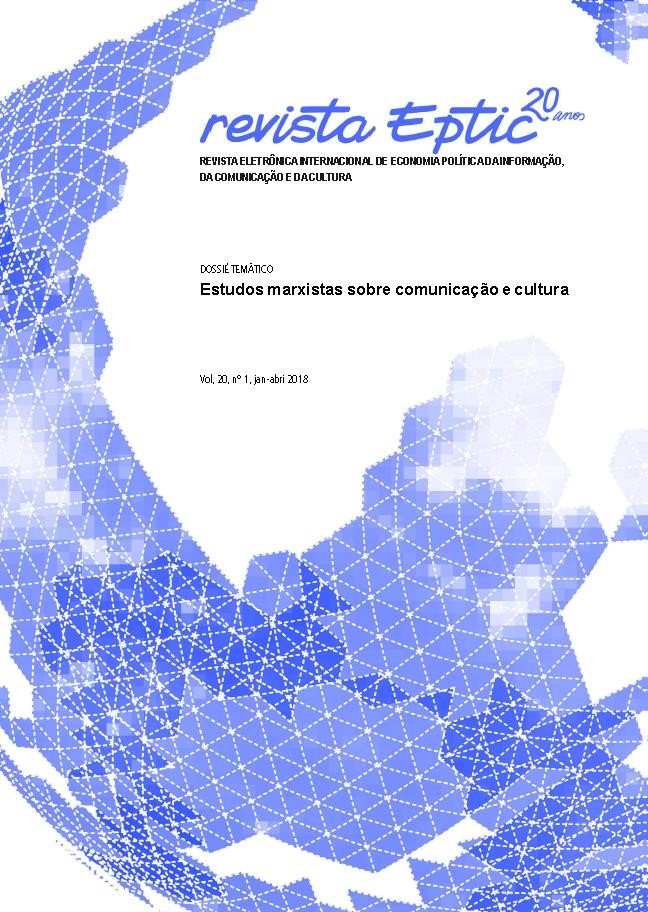The commodity-form in Cuba’s telecom and wireless services: a Marxist Political Economy overview
Palavras-chave:
Political Economy of Communication (PEC), State Socialism, Telecommunications, Wireless Communications, MarxismResumo
In contemporary Cuba, there is a blatant contradiction between the high prices
of telecom and wireless services, controlled by a state monopoly, and the weak
purchasing power of the working class. This contradiction evidences a process of
commodification that cannot be simply traced back to the partial privatizations
that the Cuban telecom system experienced after the collapse of the Soviet bloc
in the 1990s. Commodification is derived from a broader restructuring of the
state socialist economy that started in the 1990s: the state-led appropriation of
value in circulation when value is in the money form. In the context of a crisis in
accumulation, obstacles against changing the conditions in production fostered
transformations in the domain of circulation to appropriate value in the hands
of the state. Within these transformations, partial privatizations and the commodification of the telecom and wireless services have played a key role for the national economy
Downloads
Downloads
Publicado
Como Citar
Edição
Seção
Licença
A Revista Eptic adota a CC BY-NC-SA 4.0 onde os licenciados têm o direito de copiar, distribuir, exibir e executar a obra e fazer trabalhos derivados dela, para fins não comerciais e somente desde que sejam dados os devidos créditos ao autor ou licenciador.
Ao submeterem qualquer texto à Revista, os autores declaram que os materiais apresentados estão livres de direito cópia (copyright), não cabendo, portanto, à Revista EPTIC e a seus editores, quaisquer responsabilidades jurídicas. As submissões, se aprovadas, serão publicados pela Revista sob a licença Creative Commons CC BY-NC-AS.








 Licenciada por
Licenciada por 